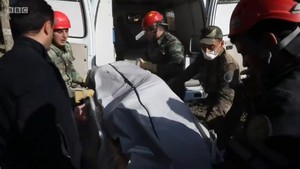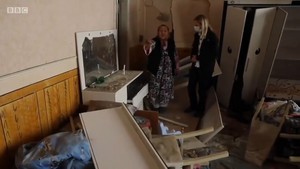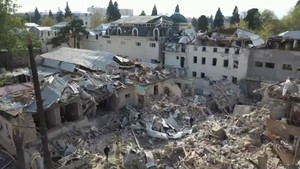The BBC broadcasted a reportage on Armenia's missile attack on Ganja, Report informs.
The correspondent says that the ceasefire reached between Armenia and Azerbaijan was breached within the first 24 hours. It is noted that after the shelling of a residential building in Ganja, Azerbaijan claims that Armenia has committed a war crime.
The reportage presents the footage of houses destroyed by the Armenian missile attack and people who lost their loved ones.
A BBC correspondent at the scene showed the wreckage and said, "Here is what's left of the neighborhood in Ganja, Azerbaijan's second-largest city far from the frontline. There are no signs of military targets. We saw the remnants of the ballistic missile. It was a civilian target- apartment blocks, flats where people were living. There are beds and blankets strewn among the rubbles. The attack happened at 2 am."
"It was supposed to be a ceasefire, but it looks like a real war. What happens next? Is there worse to come?" says the reportage.
"If Armenia continues to attack Azerbaijani civilians, Azerbaijan will be obliged to take necessary measures against illegitimate military targets," Azerbaijani President's Aide, Hikmat Hajiyev emphasized while answering the question whether the ceasefire was dead.
Hajiyev also commented on the continuation of the ceasefire highlighting that Azerbaijan tries to stick to the truce, but if Armenia continues attacking Azerbaijani civilians, as every nation, they have the right to self-defense.
The journalist also provided footage from inside one of the houses destroyed by the rocket attack, showing the blankets between the rubble, saying, "the grandchildren of the resident of the house slept in this bed, but fortunately they survived."








 https://static.report.az/photo/40ac85c6-8b84-3b39-a752-57e96af95c1a.jpg
https://static.report.az/photo/40ac85c6-8b84-3b39-a752-57e96af95c1a.jpg

